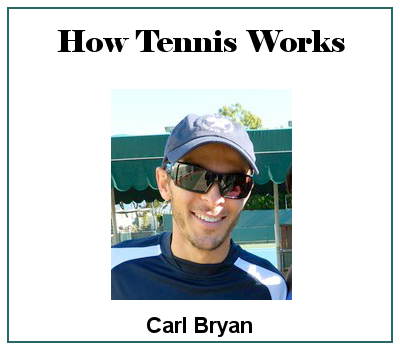How Tennis
Works:
Two-Handed Backhand
By Rich Neher in collaboration
with Carl Bryan
Photos by Rich Neher
Our guest pro for this demonstration
is Carl Bryan, certified coach by the Professional Tennis Registry.
Bryan trained at the Weil Academy in Ojai, California. and spent
years as the hitting partner for his cousins Mike and Bob Bryan
on the pro tour. He also coached in Spain, France and Italy.
Today he teaches at the Toluca Lake Tennis and Fitness Club and
at Weddington Golf & Tennis, both in the Los Angeles area.
His teaching business is called
Bryan Bros Practicing Pros.You can reach Carl Bryan at bryanbrospracticingpros@gmail.com.
Mastering the two-handed backhand
will give you a powerful stroke in tennis which, when combined
with a one-handed backhand slice, will add great variety to your
game.
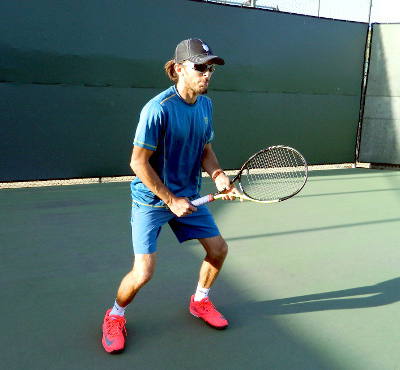 |
Stand in the split step and ready
position. Prepare yourself for an efficienct, compact backswing
and two wide shoulder turns. |
|
Keep your feet planted
and turn your shoulders and racquet
together. The non-dominant hand will be leading and driving
through the ball while the dominant arm is getting out of the
way. Sidestep your outside leg a bit to make it easier to
tep into the shot. Now you should be looking over your
dominant shoulder. |
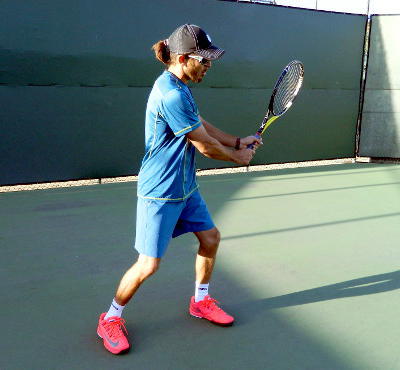 |
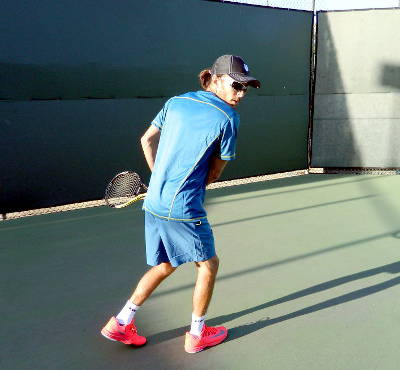 |
Step into the shot. Let your racquet
head drop below the height of the ball for top spin or right
at the height of the ball for a flat shot. The butt cap of your
racquet should face the incoming ball. Begin your forward swing. |
|
Make contact out
in front with your racquet parallel to the net.
Your body will drive through that ball towards your target.
Your legs, shoulders and arms should move in unison. |
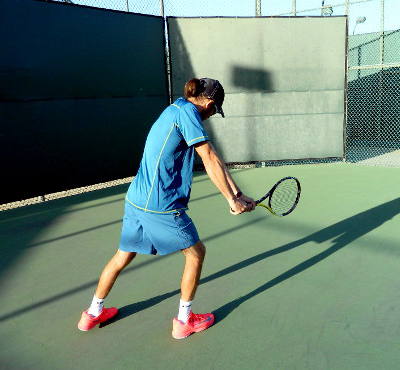 |
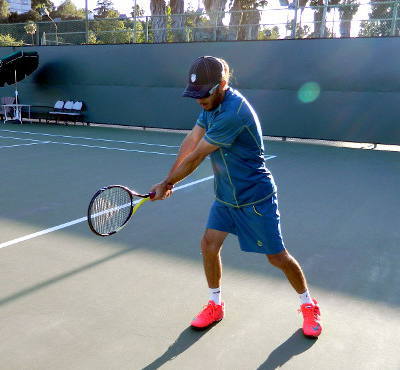 |
Keep your head steady as you watch
the ball and drive your shot through and up. Yhe racquet should
be parallel to the net before it goes up. |
|
Follow your swing
through over your dominant shoulder.
Your elbows should finish high. Keep your eyes at the point
of contact. |
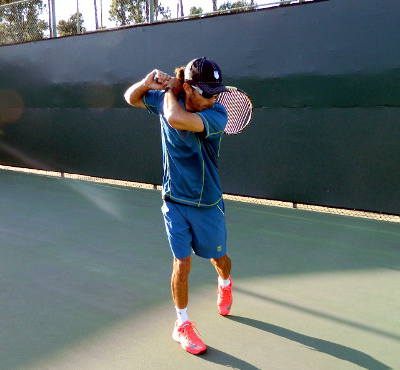 |
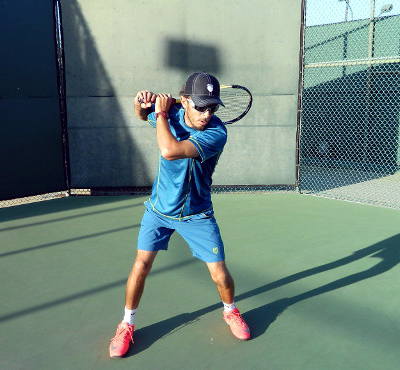 |
When you started out with your two-handed
backhand you were looking over your dominant shoulder. As you
finish the shot, you should be looking over your non-dominant
shoulder. |
|
Recover with either
a shuffle or cross-over step, depending
on how wide you were pulled off the court for the shot. |
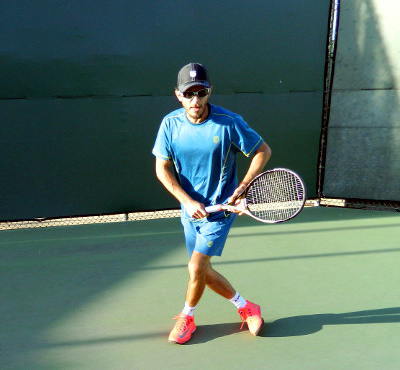 |
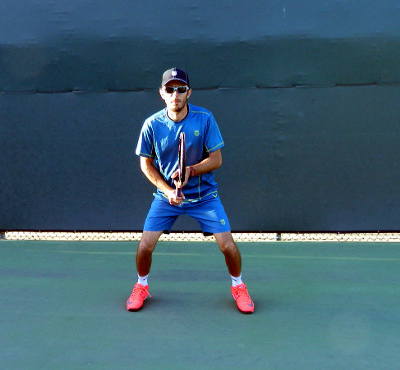 |
Return to the split-step and ready
position to prepare for
your next shot. |
|


